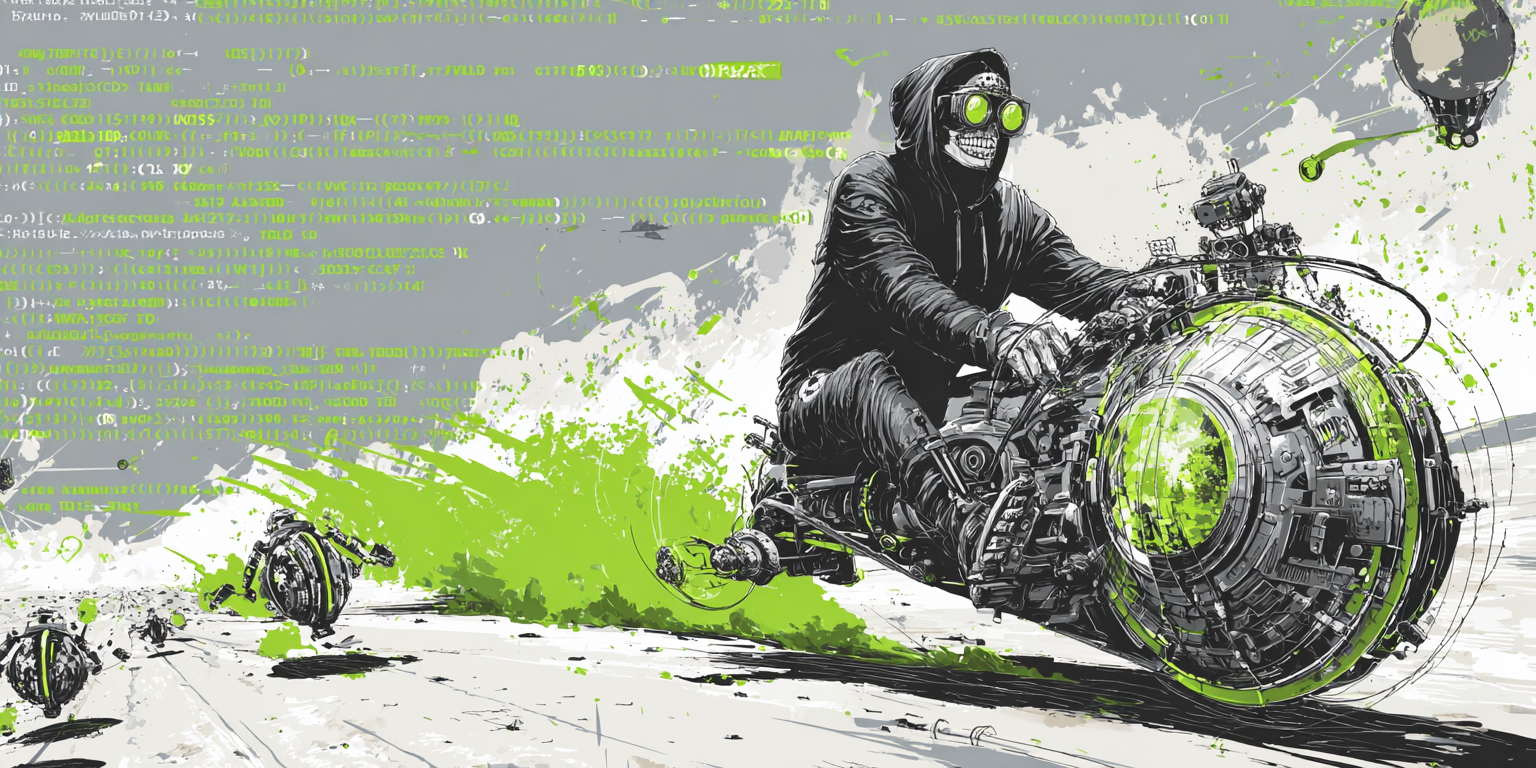
VibeRacing: When speed reveals craft
From pod racing to code racing: how a programming competition taught us about feedback loops and collaboration
Why speed matters (but not how you think)
Last Saturday, in the middle of 80 people creating at Mexico City's Release before Ready, we did something different. While some were building their first websites, others paused their projects to join an experiment. Edd stopped designing user personas for Terapify, Mario paused his chatbot workshop with Neuraan, and along with seven other developers, they sat down to compete.
One hour. One challenge. No distractions.
We called it VibeRacing, and what started as a seed planted by Sergio Prado in July about who was the fastest developer, grew in the community to become an experiment about how we learn when there's no time to doubt.
The experiment
The challenge was simple: build a task management app with specific requirements in one hour. No frameworks restrictions, no technology limitations. Just pure problem-solving under pressure.
Nine developers, different experience levels, various technology preferences. Some chose React, others Vue, some went with vanilla JavaScript. The diversity was intentional - we wanted to see how different approaches would perform under time constraints.
What we discovered wasn't about who finished first.
What time pressure reveals
When you remove the luxury of time, something interesting happens. All the theoretical knowledge, all the best practices, all the "right ways" to do things get filtered through one simple question: "What actually works right now?"
We watched developers make fascinating decisions:
Edd abandoned his usual component architecture and went straight for DOM manipulation. "I can think about clean code later," he said, fingers flying across the keyboard.
Mario chose technologies he knew intimately rather than the "best" ones for the task. Experience trumped innovation.
Others started with familiar patterns and adapted them rapidly rather than architecting from scratch.
Time pressure didn't reveal who was the "best" programmer - it revealed who had the most reliable instincts.
The feedback loop acceleration
Something magical happened around minute 30. The room's energy shifted from individual focus to collective problem-solving. Developers started sharing solutions, debugging each other's code, and building on each other's ideas.
Competition transformed into collaboration.
This wasn't planned - it emerged naturally. When everyone is struggling with the same constraints, ego dissolves and learning accelerates.
Lessons from the race
1. Mastery is about reliable patterns
The developers who performed best weren't necessarily the most knowledgeable - they were the ones who could execute familiar patterns quickly and adapt them to new requirements.
2. Speed comes from confidence, not haste
The fastest solutions came from developers who made quick decisions and stuck with them, rather than those who kept second-guessing their choices.
3. Constraints breed creativity
With unlimited time, we often over-engineer. With one hour, every decision has to be intentional and practical.
4. Community amplifies individual growth
The moment competition became collaboration, everyone's performance improved. Teaching while learning is a powerful accelerator.
Beyond the experiment
VibeRacing taught us something important about how we learn and improve as developers. It's not about being fast for the sake of speed - it's about developing the kind of deep, intuitive understanding that allows you to navigate complexity under pressure.
In our regular work, we rarely face one-hour deadlines. But we constantly face moments where we need to make quick technical decisions, debug under pressure, or adapt to changing requirements.
The developers who thrive in these moments aren't necessarily the ones who know the most - they're the ones who've practiced enough to have reliable instincts.
The craft connection
This connects directly to our broader philosophy at Release before Ready about craft. True craft isn't just about creating beautiful things when you have unlimited time and resources. It's about maintaining quality and making good decisions even when conditions are challenging.
VibeRacing was a microcosm of this principle. In one hour, we saw the difference between theoretical knowledge and practical mastery, between individual brilliance and collective intelligence.
What's next
We're planning more VibeRacing sessions, each exploring different aspects of development under pressure. Future challenges might focus on debugging, refactoring, or collaborative problem-solving.
The goal isn't to turn programming into a sport - it's to create focused practice opportunities that reveal and strengthen the fundamental skills that make us better developers.
If you're interested in joining future VibeRacing sessions, or if you want to organize one in your community, reach out to us. The format is simple, but the insights are profound.
Sometimes you need to race to remember why you love to build.